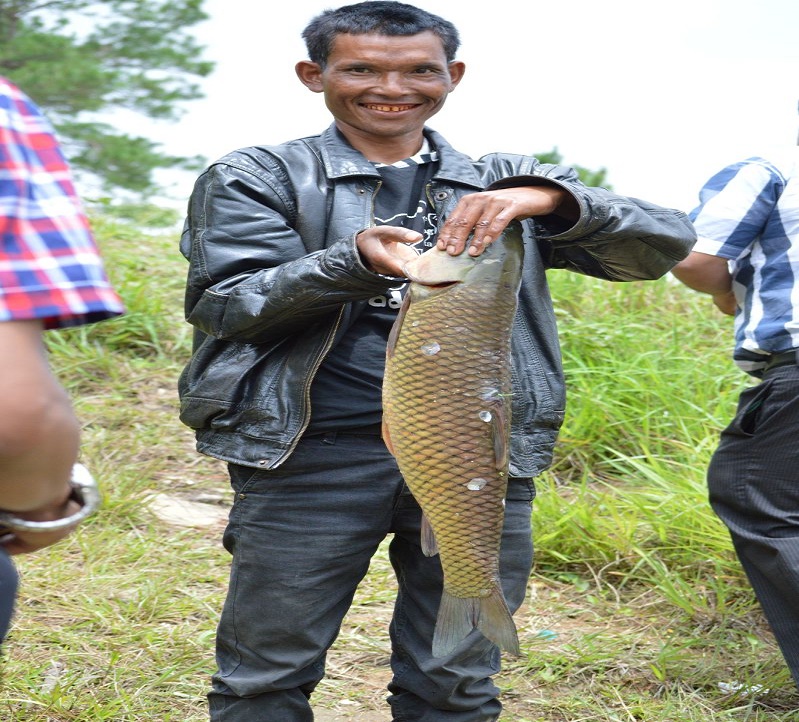
Ploit Sunar is a busy man nowadays, engaged in farming and many other activities on his land in Laskein. His is a unique story of innovative thinking in which he took his Jalkund and turned it into an integrated farming system. Piggery, duckery, goatery, fish breeding and rice cultivation are some of the activities that he has started just with the help of a single resource - the Jalkund. All these activities earn him an income of not less than ₹2,00,000 annually.
However, ten years ago his life was a different story. Ploit Sunar lost both his parents at a very young age, when he was still in school. Grief stricken, he dropped out of school and soon took comfort in drinking. His life started to spiral out of control but he could not help himself. He abandoned the paddy field left behind by his parents. The field stood barren for years. He started a family but didn’t change his ways, making life hard for both himself and his family.
But all this was about to change. He didn’t know yet that the paddy field he had inherited from his parents, the field which he had so carelessly abandoned, was a blessing in disguise. As it turns out, the paddy field was a source of perennial water and officers fromthe Government of Meghalaya’s Water Resources Department had identified this site as a viable place for the construction of a Type 2 Jalkund. A Jalkund is a water harvesting structure; a Type 2 Jalkund is one that gets its water from surface or ground water through small, localized engineering structures. Soon a construction project was proposed, with funds coming from the IBDLP Programme under convergence with the Water Resources Department.
Ploit agreed to the construction thinking it was just another government scheme and if nothing else, he would get some money out of it. But once the Jalkund was constructed and his old paddy field began to get flooded, he suddenly realised that maybe he could actually do something with the Jalkund and earn money out of it. He thought for some time and decided to go with a fishery. He started with a handful of fingerlings and saw that fishes grew quick and fast in his reservoir. This gave him good income. Once people started inquiring about fishing in his pond he got another idea. He could rent out his pond for fishing and make even more money without having to go to the market to sell the fish himself.
The size of the fishes caught from his pond was so big that word about his pond soon spread far and wide across Laskein. People started to flock to his pond, paying good money for a good catch. With the money he earned, Ploit was now able to provide for his family. The success of his endeavour made him a changed man. He felt a new sense of self respect and started enjoying his ability to take care of his family and his business. For the first time in many years, his family were happy and they came out to fully support him. Seeing his family happy encouraged him to devote more time to his Jalkund, exploring innovative ways to make his enterprise flourish.
Over time, he started rearing goats and he found that his land was very well suited for that. Today he proudly claims that his goats are the fattest and the best fed in the area. He then introduced ducks into his Jalkund, earning even more income by selling their eggs. He also started rearing pigs which he now sells for meat. Most recently Ploit converted half of his jalkund into a paddy field where he now cultivates rice. Thus his integrated farm is both a source of income and a direct source of food for him and his family. Today Ploit is a respected member of his clan and community, and is able to support 5-6 members of his clan in addition to his family members. Ploit is honest about his failures in the past andhopes that his story inspires others to keep trying no matter how difficult things get, because if they do then life will turn around.